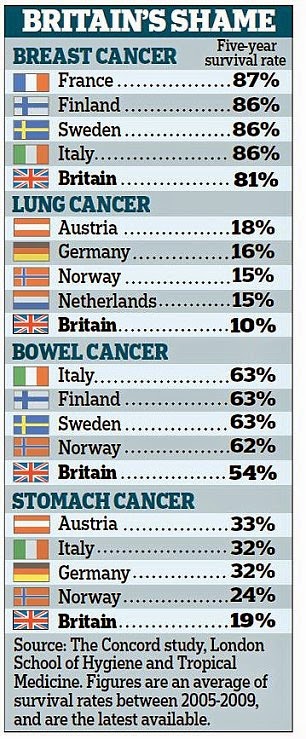- Test predicts how likely it is that breast cancer will return to sufferers
- Those at high risk would be urged to take preventative drugs for five years
- Oncotype DX test is not used by many hospitals as it is too expensive
Those found to be at high risk would be urged to carry on taking preventative drugs for five years and beyond after they have had surgery.
Currently, all women with the most common form of breast cancer – oestrogen positive – are advised to take hormone drugs such as Tamoxifen for up to five years after surgery to remove tumours. But researchers from the Royal Marsden Hospital in London have claimed that a test already available on the NHS could be used in a slightly different way to identify high risk women who would benefit from taking the drugs for longer.
This is the Oncotype DX test, which analyses the genes in a sample of tumour removed after surgery to predict the aggressiveness of the cancer. Read more: http://www.dailymail.co.uk/health/article-3133882/Test-predict-likelihood-breast-cancer-relapse-help-thousands-Women-high-risk-given-drugs-longer-surgery-chemotherapy.html




